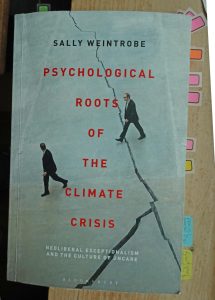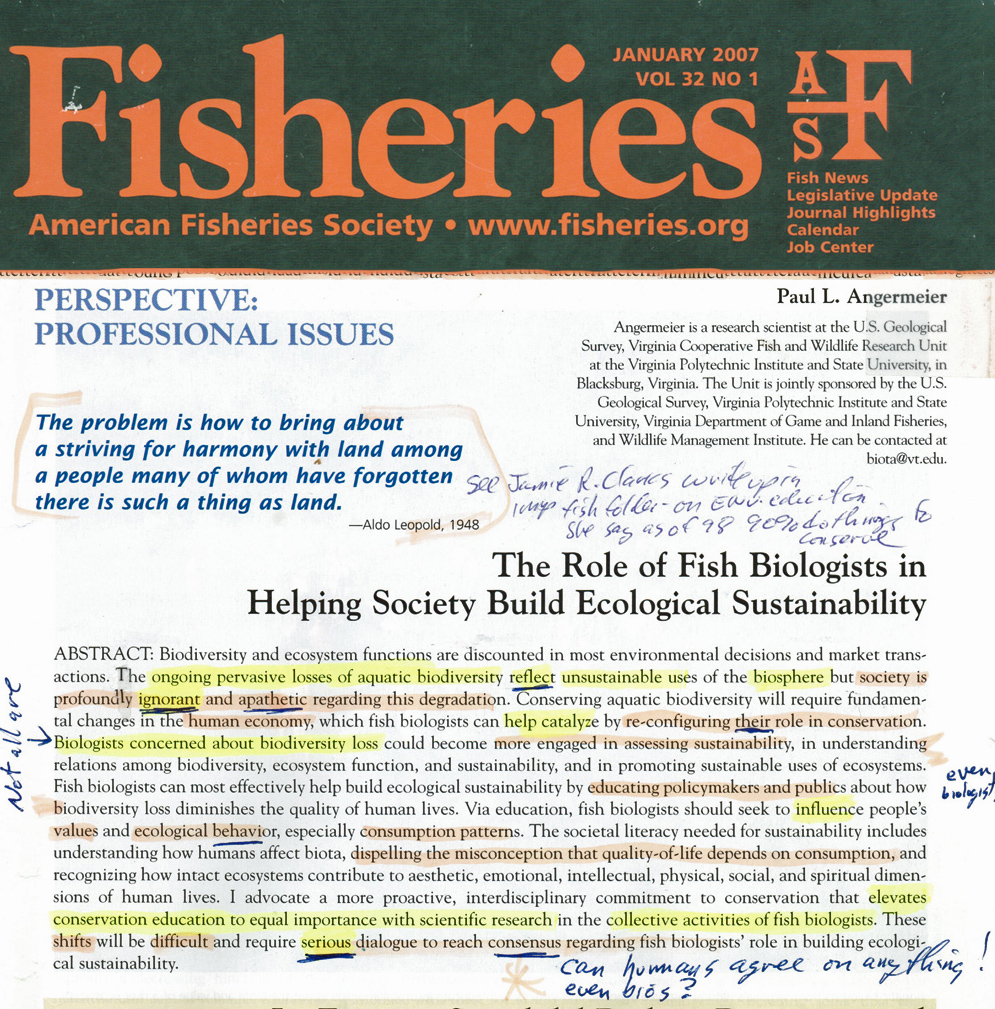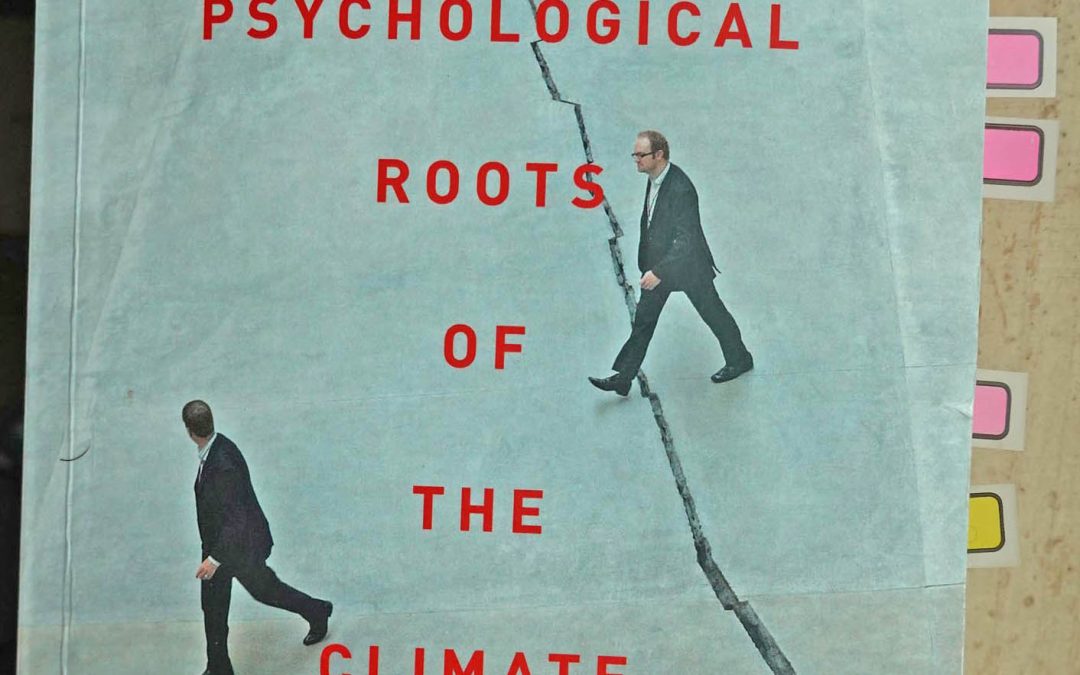
I’m not normally a sneaky person…or, maybe I am when it comes to getting my message out! I’ve occasionally tried to connect with someone who I knew knew someone important and influential who might be able to help me in my effort to make a difference (e.g., Patch Adams who knows Tom Shadyac – the director of Patch Adams). This is one of those times. Sally Weintrobe wrote the book Psychological Roots Of The Climate Crisis: Neoliberal Exceptionalism And The Culture Of Uncare. Sally is a Fellow of the British Psychoanalytical Society (BPAS), an original member of the Climate Psychology Alliance (CPA) and Chair of the International Psychoanalytic Association’s Climate Committee.
I figured with Sally’s involvement in all those psycho-things, surely she’d know Lise Van Susteren. So, I sent the following E-mail to Sally, but like so many of my other cold calls – never heard back. Don’t get me wrong, I’m not holding that against Sally (or any of the countless others). I know how busy people are. Why are so many of us – including me – unbelievably busy? In part, and a large part, because of the fast pace of life. I learned as a biologist that that is possibly the biggest impediment that any of us enviro-types are up against in getting our messages out. In fact, I contend that it’s what anyone and everyone who is trying to accomplish anything productive are up against!
I’m personally inundated with E-mails…whether important or superfluous. I was getting a ton of substacks before I even knew what a substack was! I’ve missed highly valuable E-mails, or only partially read them missing the vital stuff (e.g., one from David Holbrooke in my decade-long effort to connect with Tom Shadyac!).
Before you read the E-mail to Sally, a little context is necessary. Trust me, context is everything these days. Here’s how she started her Introduction out: ‘Aaaaarrrggghhh…it’s hard to explain.’ Frankie, aged fourteen, asked what he felt and thought about the climate crisis. (Hickman, 2019, PP. 49-50)
But, more importantly to me is what she wrote in the How to read this book section: “Although the book is written as a story that develops in time, feel free to begin wherever you like, skip chapters and whole parts, and work forwards or backwards.” I have at least one cognitive impairment that’s both a hindrance and a benefit (I can read some books from back to front), that I believe provides some unique insights as to the need for Homo sapiens (“the wise ones”) to get in charge of ourselves – individually as well as collectively – psychologically if we are ever to come together as a species and solve the many potential existential conundrums facing mankind.
Here is my correspondence I sent to Sally:
Hello Sally,
I’m an Alaska fish biologist who, for several reasons, has long been interested in psychology. Shortly after going back to college at the University of Wyoming for an undergraduate degree in Wildlife & Fisheries Conservation and Management while in my mid-thirties in 1991, I had several people suggest that I pursue a graduate degree. At my age, I knew it would never happen; however, my response to them was that if I did, I’d take classes in psychology.
It baffled me why humans incessantly inflict environmental destruction on our beautiful planet…often, when we know we shouldn’t. A U.S. Forest Service crony once told me, “You got to know sin to preach against sin!”. Sadly, even fish biologists aren’t exempt from inflicting harm! Here’s what Max Bazerman from Harvard claims, “Perhaps the most amazing example of judgment problems in our natural resource decision making is fisheries. Here we see the same pattern over and over.”
As a biologist working for the U.S. Fish & Wildlife Service in Wyoming, I saw firsthand how even that agency neglects the fishes they espouse to revere…even when the word fish is in their name! That article, by the way, is written from a fish’s perspective…a cynical fish.
Alaska is often touted as having the most well-managed fisheries in the world, but there are many fish stocks currently in trouble from the accepted management practices of bottom trawling and the most heinous activity of all – bycatch. Unfortunately, putting a stop to those activities is as elusive as solving the climate change conundrum because the root problems stem from psychological biases.
Another reason I’ve been interested in psychology, and it has to do with environmental grief, is something you and Bill McKibben both talk about. You see, I’ve experienced debilitating depression for nearly two decades, and not just from the continual onslaught of environmental degradation. My depression originated from psychological abuse in the form of gaslighting from my first supervisor in Wyoming, who was not a mentor…but, a tormentor, who set me up to fail every chance he could shortly after completing my fisheries degree mentioned above. This diminutive person exhibited Napoleon syndrome, and I was told that he felt threatened by me in one way or another.
To get away from his incessant torment, I moved to Idaho where I dealt with not only death threats from disgruntled loggers, miners, and ranchers – but animosity from fellow Forest Service colleagues over attempts to save the few remaining wild salmon of the Salmon and Clearwater rivers. During those three worst years of my life, I learned several important life-changing lessons…and, about the dark side of humanity.
I don’t mean to bog you down, but I’ve attached a highlighted version of an article titled The Role of Fish Biologists in Helping Society Build Ecological Sustainability that mentions psychology in one form or another no less than five times. This article reinforced my long-held belief that we must bring psychology into the mix, if anyone is going to make a difference altering mankind’s individual and collective behavior enough to start heading down the right path to sustainable existence.
I’m currently reading Psychological Roots of the Climate Change Crisis. From the minute I picked it, up I knew that I wanted to, somehow, chat with you…if, you’re willing to reciprocate. If you’d like, we can discuss that Fisheries article, and how those highlighted sections relate to your book and a project I’m working on to get a very powerful, yet different, environmental message out in a big way.
What is the project I’m working on? I’m on a mission to convince someone in Hollywood that there’s a story to be told based on my life, that if told correctly, could get a bigger environmental message out than Rachel Carson’s Silent Spring. Even though this film would be based heavily on my life, it wouldn’t be a documentary – but a full-length feature film. Because I often discuss the realities of a further-degraded planet with friends and family, they accuse me of being a pessimist…but that couldn’t be further from the truth; in all actuality, I may be the world’s biggest optimist. Some think I’m not only a pessimist, but delusional to think my life story could be the basis for a compelling movie that makes the difference I envision it can…all of which fits into the story’s plot.
The theme, and the elixir the protagonist brings back to his tribe (at least those experiencing solastalgia), would be the following Joseph Campbell quote: “We’re not on this journey to save the world, but to save ourselves; in doing that, you save the world.”
Hopefully, of interest to you, would be that the movie as I envision it would be very much about what you’ve written in your Introduction and Conclusion.
Consequently, what I’m hoping to do is co-create a climate story that breaks the silence of not only the climate crisis, but all the other environmental conundrums that are coalescing into the perfect storm that is menacingly looming on the horizon. The most difficult part of my endeavor is that I’m like Frankie, because I’m trying to do that “all in one go.”
Thank you for your time, and if you’d like to correspond, my contact information is below.
Dave Cannon
![]()
Here’s the abstract for the article I attached to the E-mail to Sally. This article in a professional fisheries magazine mentioned psychology five times, which is why I’ve long said that there is a need to incorporate psychology into the fisheries management mix…and, all other environmental concerns.


